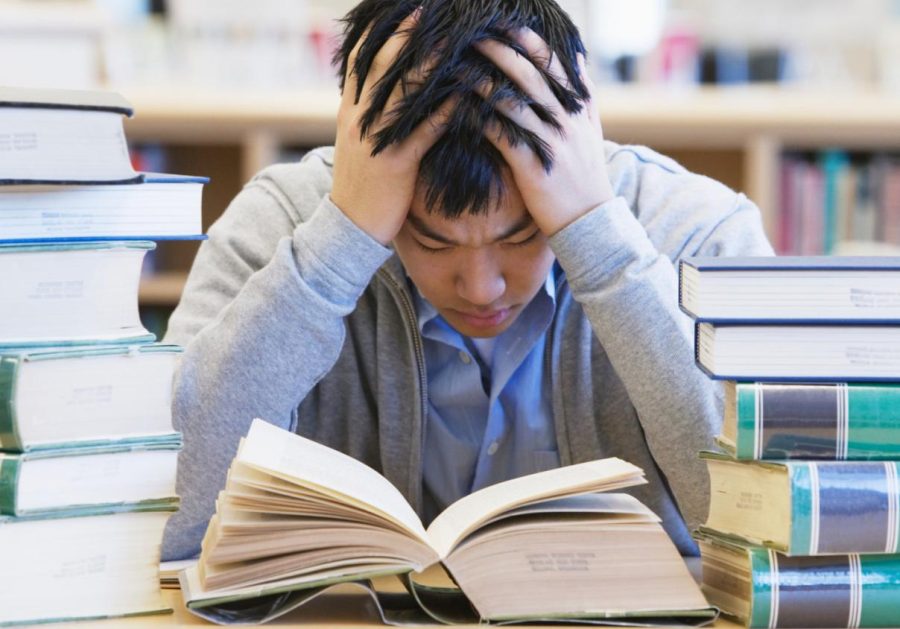Finals got you stressed? Try these tips
April 23, 2023
Finals are creeping up fast and the stress is building. The good news is, after this overwhelming week, comes summer break. As finals approach there are things we can do to avoid some of the stress.
Be as Prepared as Possible
Whether a test, paper or speech, a great way to avoid future stress is to prepare. As everything starts to pile up it gets harder to stay on track. To avoid the pile up, use time wisely. If class ends early or a professor gives time to work in class, take advantage of it.
Feeling confused or struggling with a final will make the week so much harder. Do not be afraid to ask professors for their help, that’s what they’re here for. In the weeks leading up to finals, utilize student conference office hours. Also, try to finish any late or missing work that may be causing extra stress.
Walking into a final unfamiliar with the material can be extremely stressful. To avoid that, do not procrastinate studying. Some students may feel like studying is an impossible task but there are ways to make it a bit easier.
A Point Loma Nazarene University article on surviving finals’ week gives some great study tips. Finding “a space conducive to studying” is the first thing to complete a successful study session. A bed is never a good option. Instead, try sitting outside, going to a local coffee shop or park, or even sitting at a kitchen table can make a difference.
In that article they also mention making a playlist to help with focus. Apple Music just came out with a Classical Music app which makes this even easier. Listening to classical music may help increase focus while studying. Working in a study group may also help make studying more fun and efficient. Gather a few classmates to help work through the obstacles.
Create a personal study guide to help prioritize. Start with the most time consuming or hardest things to study. Getting started on a long assignment instead of putting it off, allows time to ask questions and take breaks. Templates for study guides and planners can be found on the website Canva. Quizlet is also a great free resource. Quizlet gives multiple study options like personalized testing, flashcards, games, and more.
Psychology Department faculty member Maria-Magdalena Farc, Ph.D., has some insight on how to study more efficiently and effectively. First, she advised that to successfully study, all distractions need to be put away. “Yes, that also includes the phone,” she said.
Once distractions have been eliminated the real studying can begin. Farc suggests you “think of how the ideas you are learning connect to knowledge you already have and to your own life and test yourself when you learn.” You should close the book and try to retrieve information.
Farc also recommends using the Pomodoro technique. She explains the technique as “focus for 25 minutes and take a 5-minute break, then repeat up to four times before a longer break.” The body needs to take breaks to avoid feeling overwhelmed. This technique may help you to stay on track while studying.
Lastly, she recommends: “Distribute your learning over a few days to take advantage of sleep memory consolidation… Don’t forget to take breaks and connect with your friends, with nature, and with yourself via meditation or breathing exercises. Finals bring intense work, and you are ready to take it on.”
How To Cope
Having healthy coping strategies is necessary to managing stressful situations. Leading up to finals, it is necessary to take care of oneself mentally and physically. A healthy diet, regular exercise and good sleep are great practical ways to reduce stress.
Farc said, “make sure that you are sleeping enough and that you are eating nutritious food.” Walnuts, fish, and eggs have been proven to help the brain thrive.
Harvard University’s “tips to help control stress” says to consider meal planning. Meal planning is a good option if a busy schedule limits one’s ability to eat healthy.
Many college students struggle with sleep. The American Psychological Association (APA) suggests getting exercise to reduce stress levels. Also they suggest a consistent sleep routine to help wind down before going to sleep.
The APA gives some helpful tips as to how to curate a consistent sleep schedule: “Meditation and relaxation can help with insomnia…put down your screens, as blue light can suppress the sleep hormone melatonin.” Checking social media may ramp up your emotions.
It can be difficult to incorporate and prioritize exercise with a busy schedule. An easy and free option is MCC’s fitness center that is open to all students. There are also plenty of online workout videos and routines that can be done just about anywhere. If classic fitness does not sound appealing, make it fun. Going to a trampoline park, a walk with friends, or a solo dance party are some ways to make it fun. In the summer, swimming is a great way to get exercise without even realizing it.
Farc’s take on stress is that “stress is such an interesting concept. On the one hand, it can have destructive effects on our minds and bodies. On the other hand, if understood and viewed properly, it can serve as a great source of energy.”

